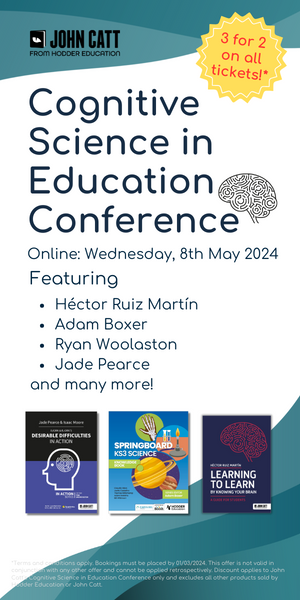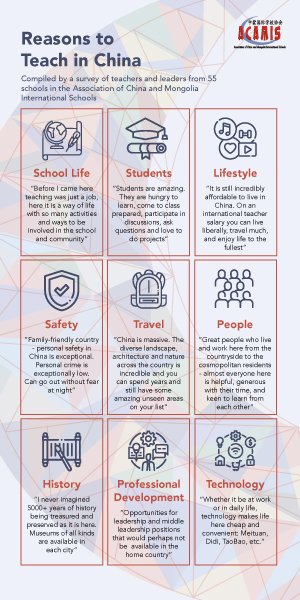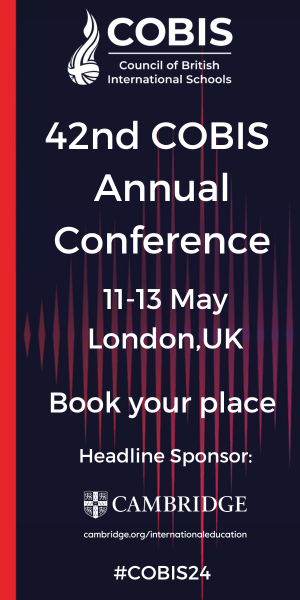By Chelsey Seymour, Ben Vaughan, Tinisha Hall, Jamie Hagan and Hanaa El Sayed
Rationale
By engaging in action research projects, a team of advanced skills teachers have successfully improved the quality of teaching and learning against the school improvement plan. This approach offers a valuable opportunity for schools of all budgets to enhance the quality of their professional development programmes and cultivate a culture of continuous improvement. By supporting practice with educational research and emphasising the ‘why’ behind improvement efforts, staff members have bought into the process and are achieving more meaningful progress.
“Schools are a live entity where change is inevitable and action plans need to accommodate this.”
Getting started with action research
When engaging with action research in your school, collaboration with leaders is essential to determine a specific and appropriate developmental focus or foci. To achieve successful results, you must determine the specific problem or issues you want to investigate and improve through action research. To determine the foci, a range of resources should inform the final focus area. School inspection reports and improvement plans are useful documents to initiate lines of inquiry, but in-depth knowledge of your classrooms and teachers’ skill sets is the determining factor in finalising a purposeful developmental plan.
Action planning is essential to the success of action research to support the process and outline roles, expectations and methodology to ensure transparent application. Succinct aims, actions, success criteria and outcomes become the driving force of the project. It is important to anticipate any potential challenges in your educational context and how you could navigate them. Each school is a live entity where change is inevitable and action plans need to accommodate this by being flexible and fluid. Clearly define the boundaries and scope of your research. Consider the context, population and resources available for your study. Be realistic about what you can accomplish within your timeframe and constraints.
Educational research provides pedagogical influence and validity to the planning and implementation of improvements. Keeping up to date with educational research not only adds rigour to the project but also keeps international schools aligned with the ‘why’ of educational movements before adapting and filtering them into our settings. Teachers benefit from the science behind the new ideas and being given irrefutable evidence that the changes being implemented have been proven to work in different settings and are suitable for their own school. Thus increasing investment and professional trust from staff.
Implementation and monitoring
A forum for launching action research projects that five school professional development leads found effective was a CPD session with the target recipients responsible for implementing the improvements. The scale of the action plan will determine the number of participants ranging from whole school initiatives to smaller targeted groups. The aims, plan and supporting research are shared to begin the process and align staff in a collaborative continuous development process. An ‘I, We, You’ model is advisable to maintain dialogue and collegiality. Leaders (I) model initial practice supported by research, staff (WE) then collaboratively explore and prepare their practice together to begin implementing in their classrooms (YOU).
Monitoring must be consistent and well-planned for the duration of the project. Monitoring strategies should best measure progress against the project objectives to remain aligned with the intended trajectory. It is important that there is continuous monitoring as evidence begins to manifest within your school. This should then inform reviewing, refining and any redirection of your intended outcomes in order to maximise the impact of your project.
Suggested strategies:
To maintain continual development through the action plan strategies plan received by teachers, we suggest:
- Utilising three-week CPD cycles that protect time to review and renew practice.
- Building a supportive culture through gallery lessons for colleagues to observe the developing practice.
- Creating discussion forums to exchange insights and setbacks and provide peer-on-peer support.
- Implementing voluntary sign-ups where staff identify a time in their week to demonstrate the CPD strategies in practice.
- Finding contextually appropriate video resources that reflect the demographic of the school to support development.
- Sharing best practice platforms such as marketplaces and peer teaching workshops, celebrating progress.
Measurement
To be able to measure impact, purposeful baseline data explicitly aligned to the research objectives needs to be collected and measured. The indicators should align with your research objective and reflect the changes you expect to observe. In some instances, the data is readily available (i.e., student data). Other effective methods are lesson observations, surveys, stakeholder voice, internal data, etc. It is important to collect a range of qualitative and quantitative data from a range of perspectives to compare outcomes and determine the impact of your action research. Measurement must be ongoing and used to inform adjustments and refinements to the process.
Reflections
As your project concludes, reflect on your findings and the insight gained from lessons learned, recognise unexpected outcomes, challenges or limitations, and consider any implications of your results and the effectiveness of your interventions. Reflecting is essential to refine future research and to improve your understanding of impact measurement.
To summarise, action research models provide a structured and systematic approach to problem-solving. They allow educators to gather data, analyse root causes and implement targeted interventions to bring about positive change and collegiality. They promote a culture of evidence-based decision-making and continuous improvement, which ultimately benefits both teachers and students.
Chelsey Seymour (Assistant Head Teacher), Ben Vaughan (Advanced Skills Teacher), Tinisha Hall (Advanced Skills Teacher), Jamie Hagan (Advanced Skills Teacher) and Hanaa El Sayed (Advanced Skills Teacher) all work at GEMS Founders School Dubai. You can connect with Chelsey on LinkedIn.









